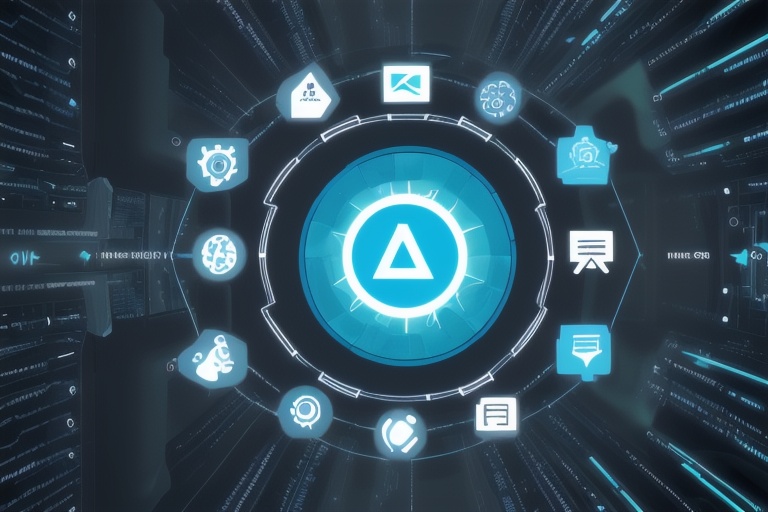The emergence of artificial intelligence (AI) has sparked a vigorous debate among scientists, technologists, and the broader public. At the heart of AI's promise is its potential to simplify and enrich various aspects of our daily lives, offering opportunities to transform industries and improve our world in profound ways. Yet, alongside these promising visions lies a web of concerns that are impossible to overlook. These concerns range from AI's implications for employment and privacy to its potential for misuse in cybercrime and global politics.
The emergence of artificial intelligence (AI) has sparked a vigorous debate among scientists, technologists, and the broader public. At the heart of AI's promise is its potential to simplify and enrich various aspects of our daily lives, offering opportunities to transform industries and improve our world in profound ways. Yet, alongside these promising visions lies a web of concerns that are impossible to overlook. These concerns range from AI's implications for employment and privacy to its potential for misuse in cybercrime and global politics.
The Dual-Edged Sword of AI in the Workplace
One of the major areas where AI has prompted intense discussion is the realm of employment. As computers and intelligent systems increasingly match—and in some cases—surpass human abilities, anxiety over job displacement has surged. The fear that AI could usurp the role of humans in intellectual and creative tasks isn't unfounded. A notable study by Oxford University, published in May 2017, speculated that there could be a 50% chance for AI systems to outdo humans in almost every job within a few decades. Such dramatic shifts could raise profound questions about economic structures, professional identity, and the nature of work itself.
Addressing the Security Implications of AI
Beyond the workforce, the shadow of AI looms over the domain of cybersecurity and international relations. The specter of AI-powered cybercrime is particularly disconcerting, with intelligent systems potentially making traditional defense mechanisms obsolete and cyber threats more difficult to predict and prevent. Similarly, the risk of AI systems being commandeered by terrorists to create unprecedented disruptions—ranging from traffic system failures to coordination of attacks—cannot be downplayed. It's a future where the very same tools designed to streamline our lives could become weapons of chaos.
The ripple effect of AI's advancement could extend into the area of political stability, raising the stakes for international security and cooperation. A landscape where AI plays a central role in strategic operations poses new challenges for diplomacy and peacekeeping. It also ignites debate over the need for robust global governance mechanisms to preempt potential conflicts and ensure responsible AI deployment worldwide.
The Bright Prospects of AI
Focusing solely on the potential downsides of AI, however, would provide a lopsided view of this transformative technology. AI, in conjunction with Big Data analytics, holds the potential to rewire sectors like healthcare and environmental management for the better. Empowered with powerful algorithms, healthcare professionals could see significant advances in disease prediction, diagnosis, and treatment—ushering in a new era of personalized medicine and life-saving interventions.
The environment also stands to benefit from AI, with tools that can process vast amounts of data to better understand climate patterns, predict disasters, and inform sustainable practices. Its application could be a game-changer in our collective efforts to mitigate climate risks and protect our planet for future generations.
Striking a Balance Through Regulation
Bearing in mind these extensive implications, it becomes clear that the path forward with AI is not one to be taken lightly. Encouraging the ongoing advancement of AI technologies while implementing thoughtful regulations requires a delicate balancing act—ensuring innovation does not come at the cost of ethical considerations or societal well-being.
In this pursuit, governments and industry stakeholders must come together to establish measures that effectively mitigate the risks associated with AI’s rise. Ensuring transparency, accountability, and public dialogue will be central to this regulatory framework—building trust and consensus on how we integrate AI into the fabric of society.
The conversation about AI's impact is far from a simple one. It encompasses genuine concerns about job security, public safety, and the ethical ramifications of fast-evolving technologies. Nevertheless, by recognizing AI's potential for positive transformation and insisting on safeguards to protect against its misuse, we can chart a course toward a future where AI not only augments human capabilities but also amplifies our collective humanity. As the journey with AI unfolds, we must remain vigilant and proactive, contemplating the broader implications and societal outcomes to cultivate an environment where technology and human interests align for the greater good.
Information for this article was gathered from the following source.




